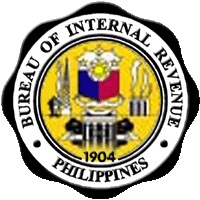
The Bureau of Internal Revenue collected P83.5 billion in July, again falling short of its monthly target.
The Bureau of Internal Revenue collected P83.5 billion in July, again falling short of its monthly target after a rare feat in June when it exceeded the month’s goal by about 8 percent.
According to BIR data released Thursday, July collection was 4.4 percent, or P3.8 billion, lower than the P87.4-billion goal for that month.
BIR records showed, however, that last month’s yield was 13.2 percent, or P9.7 billion, higher than the P73.8 billion collected in July 2011.
Tax inflows in July brought revenues for the first seven months of the year to a total of P604.7 billion, missing the target of P622.7 billion by 2.9 percent, or P18 billion.
Even then, the seven-month collection was 13.7 percent, or P72.9 billion, higher than the P531.8 billion posted in the same period of 2011.
“Collections from regional offices continue the consistent double-digit growth being registered for this year,” the BIR said in a statement.
In July alone, regional offices turned in a total of P29.6 billion, which was P6 billion, or 25.7 percent, more than the collections made in the same month last year.
As for the Large Taxpayer Service, July collections reached P49.5 billion, which was P2.7 billion, or 5.8 percent, more than the year-ago level.
Last month, Finance Secretary Cesar V. Purisima said the year-on-year improvement in the national government’s tax take, including those through the Bureau of Customs (BoC), resulted in a double-digit growth in revenue collections in the first semester.
“Since the start of the year, BIR’s monthly collections have consistently exceeded that of the previous year, with June collections being the fourth month growing by double digits,” Purisima said, adding that the BoC was performing similarly.
He said that with the Congressional sessions having resumed, the Department of Finance is keen to see the passage of the proposed laws on the reform of excise taxes on tobacco and alcohol, as well as the rationalization of fiscal incentives.
On Thursday, following a Senate committee on ways and means hearing regarding the so-called sin tax bill, Secretary Ramon A. Carandang said this—if it becomes a law—would raise additional revenues of at least P31 billion in the first year of implementation alone.
Carandang said in a statement these funds would go to expanding basic healthcare for the poor.
“There are 17.3 million smokers in the Philippines,” he said. “Many of them are from lower-income classes, and cannot afford proper medical treatment when they develop illnesses from smoking.”